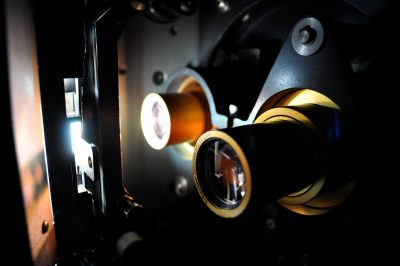Queer representation in film has spanned genres, languages, eras and the world.

Vincent Stephens, the associate dean for diversity and inclusion in the Boston University College of Arts and Sciences, and assistant professor of anthropology and biology Christopher Schmitt said they wanted to celebrate LGBTQ+ Pride Month this year with films showcasing different facets of queerness.
Stephens and Schmitt, both members of the LGBTQIA+ Faculty and Staff Community Network, put together the festival this year to have “the first campus-wide pride celebration,” Stephens said.
From Portuguese- to Spanish-language films to the 2017 Best Motion Picture Oscar winner “Moonlight,” the two organizers wanted to show a diverse collection of LGBTQ+ stories.
“The goal was really to cover a range of genres, of themes, of cultures and languages so we didn’t want to just show one type of film or cover one type of era,” Stephens said. “It’s trying to just represent different countries, different experiences, trans experiences, cisgender experiences, Black experiences, just a range.”
Six films were screened in total, and each was paired with a post-film discussion led by a BU faculty member or student. The films can still be viewed through the streaming service Kanopy for free with a BU login.
Schmitt joined Célia Bianconi, the coordinator of the Portuguese language program and a master lecturer in Portuguese, in a discussion June 29 about “Hoje Eu Quero Voltar Sozinho (The Way He Looks),” a 2014 Brazilian coming out story about a young blind man.
Schmitt said the film resonated with students who viewed it. He also said “The Living End,” another film shown with the series, was a part of New Queer Cinema: a movement where queer, defiant, bold independent films mostly produced in the early 1990s provided a different approach to LGBTQ+ characters and stories, many tied to the AIDS epidemic.
“A lot of students really appreciated the gentleness of the coming of age story represented by ‘The Way He Looks,’” they said. “Whereas those of us who came of age in the ’90s, we really loved the New Queer Cinema and it’s very confrontational approach to understanding queerness and intersectionality.”
Stephens co-led the discussion after the screening of “The Watermelon Woman,” which came out in 1996. The film made history as the first feature film released by an out Black lesbian woman and one of the few films about Black lesbians.
Sandra McEvoy, a clinical associate professor of political science and women’s, gender and sexuality studies, led the discussion on the film with Stephens. Stephens said he spoke about how the film fits into New Queer Cinema and said McEvoy “focus[ed] more on issues of representation and experience in film.”
“The Living End,” a 1992 film directed and written by Gregg Araki, is about two gay men with HIV who go on a road trip and crime spree while coming to terms with their diagnosis.
Anthony Petro, an associate professor in the department of religion and in women’s, gender and sexuality studies who led the discussion for the film, said the film is twinged with “existential angst” and shows queerness and gay sexuality unabashedly.
“A lot of these films are very political and at the same time they’re often ironic or funny, they’re also often very sexy,” he said, “and ‘The Living End’ certainly fills all of those qualities.”
Other films shown include “Todo Sobre Mi Madre,” “Una Mujer Fantastica,” and “Moonlight.” Petro said queer representation has evolved to show a more dynamic side of queer characters outside of stereotypical representations.
“It’s not just about having LGBTQ characters, but really more embodying a kind of ethos, or a kind of politics that’s fed up with mainstream ways of representing LGBTQ people,” they said, “and moving towards this queer moment where queerness represents a kind of messiness.”
Schmitt said “The Living End” is a special movie to him. When he was 18 years old, he rented it from a video store and the “very unapologetically queer film” was especially powerful at that time after seeing many LGBTQ+ films represent a “delicate queer,” such as the 1993 “Philadelphia” starring Tom Hanks, he said.
“The men in ‘The Living End’ are just balls out not giving any f—. They are really just taking what they want in the face of a world that just really would rather not see them, and maybe even would rather kill them,” Schmitt said. “Because of the time when I saw it and what it meant to me when I saw it, I think it is probably my favorite of those films.”
Stephens said the film festival, which features films viewed as more rebellious and radical for their time, serves an important purpose in bringing diverse, important stories to the BU community.
“Our audience for this is broad, it’s really just any member of the BU community,” Stephens said. “Representation matters because representation helps us understand what is possible.”

























































































































